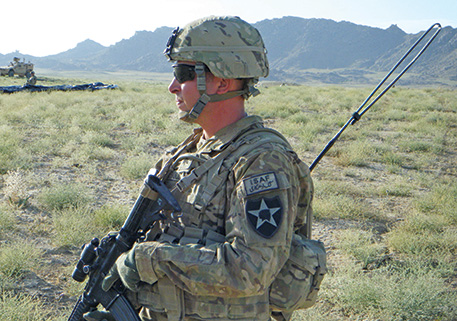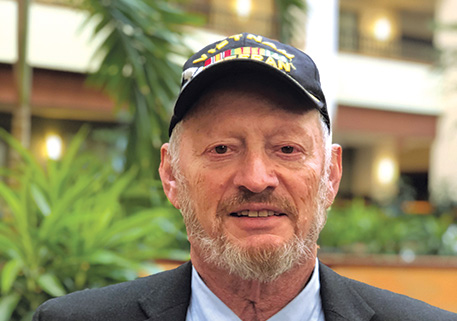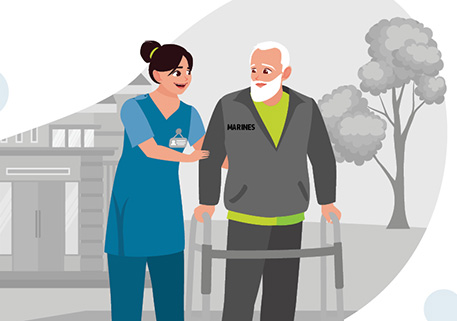Veteran fights to keep widow off the street after her husband succumbed to Agent Orange-related illness
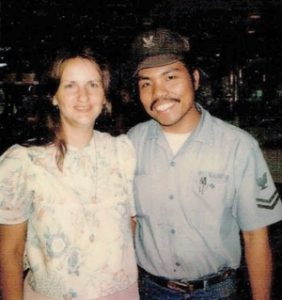
It was just one single digit, but a simple clerical error nearly determined whether Jane Miranda, the widow of a disabled Vietnam-era Navy veteran, would end up homeless.
After her husband, Jose, passed away in May 2017, Miranda found herself struggling to make ends meet. While overcome with grief and forced to come to terms with losing her spouse, Miranda realized that the annuity from his job would only cover half of her mortgage.
As she and her husband believed his illness had resulted from his time in service, Miranda filed for Dependency and Indemnity Compensation (DIC) benefits from the VA. She felt momentary relief when she received a letter in the mail announcing the VA had approved the claim, but upon reviewing the details she realized there had been an error.
While the last name was the same, the first name was not. And the Social Security number was off by one digit.
“I said, ‘Wait a minute—that is not my husband’s name or his Social Security number. What’s going on?’” said Miranda. Meanwhile, the widow was facing an increasingly dire situation. Her water had been shut off, and while she had received compensation from the VA, she knew those benefits were not hers to spend. Now she worried about paying the money back.
What’s more, she learned the actual claim for her husband had been denied.
“I was devastated; I didn’t know what to do. I cried constantly, and my health declined [due to stress],” she explained. “I couldn’t believe this happened to me. Jose was in the Navy for years. He worked with asbestos as a chief engineman, and then he served in Vietnam. It didn’t make any sense to me.”
The frustrated widow had many questions but was receiving few answers—until she was connected with Charles Burns.
An Army National Guard veteran of the Iraq War, Burns joined DAV as a national service officer in 2012 in Fort Snelling, Minn., wanting to serve his fellow veterans.
Burns’ office is responsible for all DIC claims in the western part of the country, and ultimately, Miranda’s case made it across his desk.
“It was difficult to watch her frustrations due to the situation,” said Burns. “It was important for me to be able to address, advise and solve the problem.”
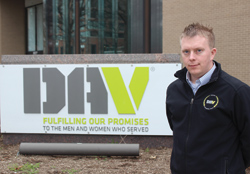

Burns determined that Jose Miranda had not been rated as service connected and was therefore not receiving benefits before he passed, resulting in the denial of his surviving wife’s claim.
“I advised Jane to work with her late husband’s physician to determine if there was a relationship between Jose’s injuries and illnesses listed on the death certificate and Agent Orange exposure,” explained Burns. “She did that and asked for reconsideration of her claim.”
Toward the end of January, Miranda finally received good—and this time accurate—news. Her claim had been approved, finally alleviating the financial burden thrust upon her following her husband’s passing.
“I was so grateful I could assist Jane in accessing the benefits her husband earned through service,” said Burns. “It’s rewarding to help not only veterans navigate the benefits process but also their dependents.”
“At DAV, we understand that military families sacrifice right alongside their loved ones,” said National Service Director Jim Marszalek. “It’s why we are committed to serving not only veterans but their dependents and survivors. We understand how life-changing benefits can be for families struggling following the loss of a loved one. The last thing a family needs on top of grief is financial instability.”
In 2017, DAV attained more than $4.3 billion in benefits on behalf veterans and their families, like Miranda.
“Thank God for Charles helping me. If he hadn’t been there, I probably would have been homeless,” said Miranda.
She said other dependents should seek assistance if they find themselves struggling to navigate the VA benefits system while facing financial insecurity—all compounded by the loss of a loved one.
“Go find someone you can trust that can help, like Charles did for me, and keep at it,” Miranda added. “Don’t let it go; fight for what you know is right.”



